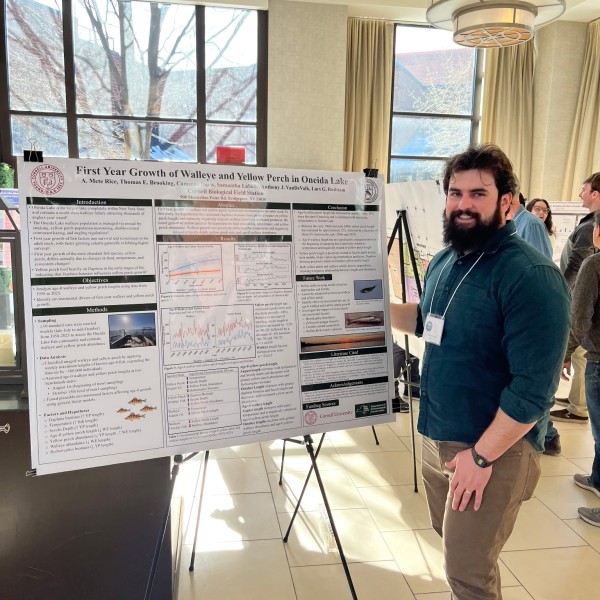Research focus: I study how the physical and spatial attributes of food processing environments influence the formation of microbial communities on those environmental surfaces and make it easier or more difficult to manage that environmental microbiota.
Research summary: My lab aims to answer many fundamental questions that are important to the control of cross-contamination through elimination of harborage sites and prevention of their formation. We’re also interested in how microbial genomics influences spoilage potential and environmental persistence.
The goal of my research is to develop practical solutions to ongoing challenges in microbial food safety and spoilage. This work requires an enhanced understanding of incidence, harborage, transfer, resistance to removal, and tolerance to inactivation among pathogens and spoilage microbes in order to develop risk-based interventions. Ultimately, this leads to the development of better tools for application, monitoring, and verification of critical food safety programs.
What do you like to do when you’re not working?
My husband and I have three dogs and a cat, all of whom have some kind of special need that stems from being strays, so they occupy a lot of our free time. And we enjoy hiking and walking (with and without the dogs).
What brought you to Cornell CALS?
The people, all the way around. From collaborating faculty in diverse fields, academic and administrative staff to students and the meaningful engagement of stakeholders, it’s a great community that really supports progress in research and education.
What do you think is important for people to understand about your field?
We have to manage food safety hazards in order to minimize the impact of foodborne disease. Even though there are around 50 million cases of foodborne illness each year in the U.S., it can be very difficult for individuals to see how their decisions help address that bottom line. That’s because people can, and often do, use higher risk behaviors that don’t immediately or obviously result in illness, complicating people’s perception of risk.
But because there are many choices that occur in food production, those higher risk decisions eventually lead to an increasing number of foodborne illnesses. What that also means is that food safety is a really broad effort that extends from the decisions made in primary production to the decisions you make in your home kitchen.
What was your most valuable research experience when you were a student?
As an undergrad, I had a couple part-time jobs working in research labs. I was fortunate to have a great post-doc mentor and engaging faculty support throughout school. That was really valuable, to hear people talk through problems in the lab, see what it was like to lead a research group, and translate science into application. Seeing that firsthand was an opportunity to think through what I wanted to do and what training I’d need to do it. I’m still at the relative start of my career, so working with great colleagues continues to be very valuable.
What’s the most surprising thing you’ve discovered about Cornell so far?
Cornell is both public and private! Although many people think of the university as just an Ivy League institution, CALS is also the state’s Land Grant college. As I sit here working remotely during the SARS-CoV-2 pandemic, I am particularly struck by the boldness of the Land Grant program which was established during the Civil War, a period of great uncertainty in the U.S., to advance the lives and livelihoods of the state’s citizens through higher education. I’m glad Cornell is a part of that tradition.
If you had unlimited grant funding, what major problem in your field would you want to solve?
There are definitely interesting and even long-term problems specific to my field of interest that I can and will develop grant proposals for (automated sanitation, development of metagenomic tools, etc.). But, with unlimited grant dollars, I think I’d try to support more systemic problems that are difficult to fund. For example, the critical need to increase public confidence in science-based health and safety recommendations. Increasing public trust and science literacy are topline problems that I think academia is equipped to address.





